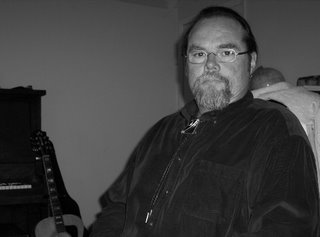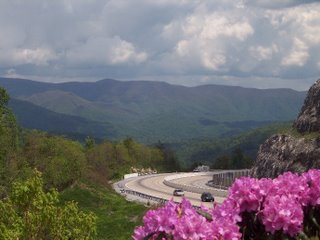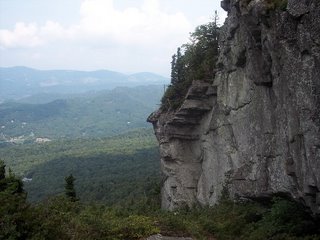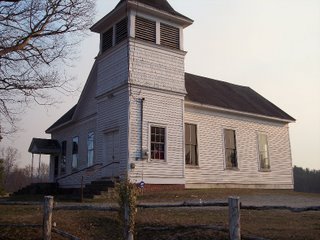Yesterday's post was about pictures for publishers, and I had some interesting responses. Leesa and I took some more shots tonight, but we're too tired now to make a decision about them. They're probably very similar but with all the clutter removed from the wall and the top of the piano.
Another part of my agent's request had to do with any kind of press or reviews related to my music career. I did a little digging this afternoon and came up with some stuff that was fun to read and absolutely amazing to remember. Here are some brief excerpts.
From Tony Kiss, Asheville Citizen-Times, Sunday, 11/19/1989-- . . . singer-songwriter Michael Cody has also made an impressive local debut, playing both 45 Cherry and McDibb's in Black Mountain. . . . Cody works in two ways: as a solo performer with guitar, and with his own electric-folk band. That diversity--and his talent as a sharp songwriter--should insure him of many local gigs. This man could easily develop a national following. He returns to 45 Cherry Dec. 9.
From Lynne Lucas, The Greenville News (SC), Friday, 3/9/1990--Prospects for a quality night of rock 'n' roll look good at Studion B March 9. Performing there will be Cody, a five-piece band based near Asheville, N.C. . . . A six-song demo tape sent from leader/songwriter Michael Cody, who also performs solo occasionally, displays a mature sense of well-crafted rock 'n' roll. With resemblance to Bruce Hornsby melodically, and Bruce Springsteen vocally, the band's music is described by Cody himself as "elements of folk in the melody and lyrics, but the rhythm of it is straight-ahead rock 'n' roll."
From Brian Mansfield, Nashville Scene, 5/3/1990--One of the great joys of my life is receiving a wonderful, unexpected demo good enough to play repeatedly in my car. (This could be because I get so many useless ones.) So when I put on "Dizzy From the Distance," the first cut on a five-song demo by former Nashville songwriter Michael Cody, I was a happy man for the rest of the day. Cody, as his North Carolina-based band is called, has sort of a Hornsby/Mellencamp sound, fronted by Michael's gruff but honest voice. Some may remember Cody's "The Jaws of Modern Romance," one of the more promising tracks on last year's Nashville Entertainment Association sampler,
The Last Great Pop Planet. The band, which I haven't seen but will recommend on the demo's strength, plays the Cannery, Stage Right on May 4.
From Karen Le Van, Louisville Music News (KY), 6/1990--The Saturday
Scene magazine said to be sure to check out Michael Cody at Butchertown Pub on Tuesday, May 15. Cody, a singer-songwriter from North Carolina, with a penchant for minor-chord hooks that tug at the heart, sounded like my kind of singer-songwriter. My first thought was, "Hey, maybe he'll be another David Wilcox-style writer," so I was set to hear nice lilting love ballads.
Wrong. Cody, the band, was setting up when I arrived. The group consisted of three electric guitars, one bass and drums. No, it definitely was not going to be a David Wilcox night. What I heard instead was a driving beat and several good up-tempo songs of love. "Dizzy from the Distance," "Rain on the River," and "Angeline" all had the sparse but enthusiastic audience moving to the beat. . . . [Here the reviewer mentions "Thunder and Lightning" and tries to quote lyrics that she probably wrote down on a napkin as they boomed from the sound system. She actually gets pretty close, given the conditions she was working under. In the following list, she mistitles a couple of songs, and I've corrected her in brackets.] Other good songs were "Counting the Days," ["Fresh Horses"], ["There Was Always a Train"] and "Heard It on the Radio." Cody consists of Danny O'Lannerghty on bass, Gene Ford and Mark Chesshir on lead guitar, and Steve Grossman on drums. Lead guitarist Ford really cooked on ["Best I've Ever Seen"] and "Heard It on the Radio." Things are getting close on a record deal so it may not be too long before we'll be hearing Cody on the radio. From the response of the audience, I think we can look forward to hearing Cody in Louisville again soon.
A blurb from Asheville's Out 'n About, June 28-July 12, 1990--CODY, 45 Cherry, downtown Asheville, 9 p.m. Free. This five-piece Asheville band performs in a style resembling Bruce Hornsby and Bruce Springsteen and "evoking images of city streets and wide-open landscapes. The lyrics deal with life and love and coming of age in the 1990s." Cody's music has been performed on The Nashville Network, The Tonight Show with Johnny Carson, and the Pat Sajak Show. Record company representatives will be on hand to check out the band live.
From Tony Kiss, Asheville Citizen-Times, Sunday, 7/22/1990-- . . . Of the area's many gifted musicians, who will be the next to break out big, to get that national contract, to be discovered? So many deserve that shot. But it could go to Michael Cody, a folk-rock guitarist/songwriter, who has built a loyal local following for his many solo and group performances. I'm sticking my neck out here. But if there's any justice in the music biz, Cody will get that national break. I'm convinced of it. This guy has such a style, such a way with songs, and such a catchy cross-over sound that it's hard not to like him on first listen. Cody and his band were in town the other night, doing another gig at 45 Cherry. According to club buzz, a record company rep was there for a listen. This was a friendly crowd, but Cody had them in his total control, first with a couple of solo acoustic numbers, then with his four bandmates. Together, they reeled off one great tune after another, all originals. Many in the club jumped to their feet and danced the night away. This doesn't happen too often, when a local club crowd responds this way to new music. But this night was an exception. Cody's music is difficult to describe. It's not rock and it's not country. It's a little of both with folk influences. The songs have neat guitar hooks and thoughtful lyrics. If you haven't caught him yet, no problem. Cody and the band play 4-5 p.m. Saturday in Pritchard Park, during the city's popular Bele Chere festival. The gig should expose him to a larger audience: the folks who don't normally go to clubs. All he needs is a chance to get his music out there on radio, on records and in clubs. With some marketing and solid backing, Michael Cody could soon be on top around the country. But remember where you heard him first.
A letter from Brian Maloney, Program Director at Kiss (WSKF) FM, 4/1/1991--
Dear Michael,
I just wanted to express my thanks for your participation in the Kiss-FM/Coors "RiverRock" album project.
Sales of the album are quickly approaching the 1,000 mark. This is an incredible number for a local album project. I know for a fact that a large portion of the sales and overall public interest in this project is due to your song "Thunder & Lightning!"
"Thunder & Lightning" has become a top-requested song here at WKSF, in many instances outnumbering requests for most of the national "superstar" acts. The song has consistently placed in our Top 5 requests for the week during the past 5 weeks.
"Thunder & Lightning" goes well beyond just a "local hit song." This is a song which has tremendous potential at a national level, and I have the research on hand to verify that. . . .
I'm sorry to be blowing my own horn here, but it's an old horn, interesting mostly because of its nostalgic sound. These written memories also brought to mind days of being recognized around Asheville as if I were some kind of celebrity. And I guess I actually was a celebrity in that very localized scene. I remember more than once being with out-of-town friends or relatives in Asheville restaurants and having somebody come up to the table and say, "Aren't you Michael Cody?" I remember Raleigh was born a little over five months after Brian Maloney wrote his letter, and the radio station made a big deal about it. I guess he and Lane and Leesa were sort of local celebrities too for a while.
To be honest, I'd forgotten most of this stuff. It was a heady time, to be sure, but even as it was going on, I was already back in school at UNC-Asheville--returning in January 1991--and stepping onto the path that after more than 15 years has brought me here to this place and moment in time.
Amazing. . . .
243.4

















